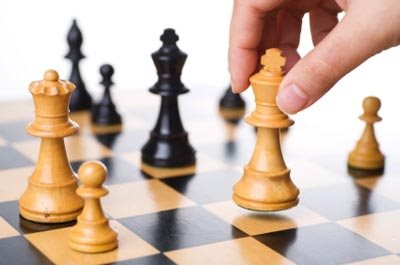Motivational Interviewing combined with chess accelerates improvement in executive functions in cocaine dependent patients: A one-month prospective study


\Received 28 November 2013; received in revised form 6 May 2014; accepted 10 May 2014. published online 09 June 2014.
Abstract
Background
In cocaine-dependent iniduals, executive function (EF) deficits are associated with poor treatment outcomes. Psychological interventions and pharmacological approaches have produced only modest effect sizes. To date, studies of this topic have been few and limited. The aim of this study was to examine the effects of a new model of intervention, which integrates chess and Motivational Interviewing, Motivational Chess (MC)
Methods
We evaluated 46 cocaine-dependent inpatients (aged 18–45), in two groups—MC (n![]() =
=![]() 26); and active comparison—AC (n
26); and active comparison—AC (n![]() =
=![]() 20). Using neuropsychological tests and an impulsivity scale, we assessed the subjects before and after the study period (one month of abstinence monitored by urine toxicology screening).
20). Using neuropsychological tests and an impulsivity scale, we assessed the subjects before and after the study period (one month of abstinence monitored by urine toxicology screening).
Results
The MC and AC groups did not differ at baseline. In the post-intervention assessment (after one month), both groups showed significant improvements in attention, mental flexibility, inhibitory control, abstraction abilities, and decision-making (p![]() <
<![]() 0.01). In addition, the improvement in working memory was more significant in the MC group than in the AC group (group-by-time interaction, p
0.01). In addition, the improvement in working memory was more significant in the MC group than in the AC group (group-by-time interaction, p![]() =
=![]() 01).
01).
Conclusions
One month of abstinence was sufficient to improve various attentional and executive domains in cocaine-dependent subjects. The MC intervention was associated with greater improvements in EFs, especially working memory, suggesting that tailored interventions focusing on complex EFs accelerate the process of cognitive recovery during the initial period of abstinence.
Keywords: Cocaine dependence, Neuropsychology, Rehabilitation, Executive function, Cognitive stimulation, Chess

